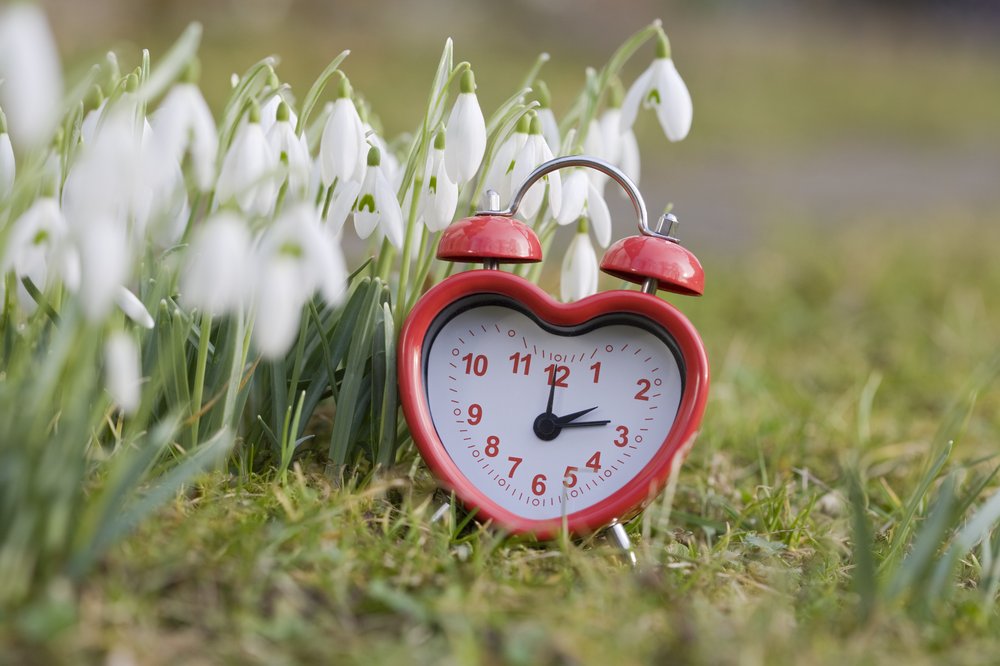Daylight saving time is coming to NYC — beware
March 9, 2023, 7:30 a.m.
We're still changing the clocks twice a year even though most people think it's silly and scientists say it's dangerous.

Spring is approaching, and with it comes the biannual frenzy over daylight saving time.
Clocks move forward an hour starting at 2 a.m. on Sunday, March 12. The time change means more light in the evenings but darker mornings.
In recent years, time changes in the spring and fall have renewed debates over why we bother. Opponents of changing the clocks say the reasons behind the time changes are outdated and the sleep effects can be detrimental to health and safety.
“Lots of bad things happen when we lose that hour of sleep in the spring,” said Dr. Andrew Spector, a sleep medicine specialist at Duke University. “But then the question becomes: Do we want to go onto permanent standard time or permanent daylight saving? And the science is pretty clear on this, that permanent standard time is the healthier one of the two.”
A 2020 study by the Public Library of Science found that “springing forward” to daylight saving time correlates with a higher risk for a range of health issues, including heart attacks, injuries, mental and behavioral disorders and autoimmune diseases.
The transition to and from standard time affects more than 1.6 billion people worldwide. Researchers writing in the journal Epidemiology found that the sudden switch to darker evenings is associated with an increase in depressive episodes.
Then there are the daylight saving time supporters: A Monmouth University poll of 809 adult Americans conducted last year found that 44% prefer to keep daylight saving time year round compared to only 13% of people who want to keep standard time and 35% who want to keep changing the clocks twice a year. A 2021 Associated Press poll had mixed results, with most people preferring to stop the time change but no consensus of whether to choose standard or daylight saving time.
The push to force permanent daylight saving time nationally gained momentum in Congress last year, when a bill to do so passed the Senate on a voice vote but died in the House. Florida Republican Sen. Marco Rubio reintroduced his bill this year.
In New York, several attempts have been made to eliminate daylight saving time.
The summer is actually a time of chronic sleep deprivation across the country because we set our clocks so that it can stay light really late.
Sleep medicine specialist Dr. Andrew Spector
The most recent was Assembly Bill A5791, which made it to the state Senate last year. It would make standard time permanent, which means clocks would “fall back” in November and stay that way. The bill died in Assembly committee.
The measure was introduced by Republican Assemblymember Angelo J. Morinello during the 2021-2022 legislative session. It has not been picked up again for the current legislative session.
Morinello said he’s agnostic about whether to stick with standard or daylight savings time.
"I don't prefer one over the other,” he said. “It's the changing of time that has negative impacts on people’s physical, mental and psychological health every year.”
The annual time change has been in practice for more than a century. In the U.S., daylight saving time started during World War I as a temporary effort to conserve resources. It was reintroduced during World War II for the same reason.
After the war, the decision on whether to continue the time change was left up to the states. In 1966 Congress passed the Uniform Time Act, which set a standard start and end to daylight saving time, but did not require states to use it. Today, all states use daylight saving time except for Arizona, Hawaii and US territories.
Even though many people prefer to have longer days with sunlight late into the evenings, experts say this is worse for sleep.
“It makes it harder to fall asleep at night, and people get fewer hours of sleep in the summer than they do in the winter,” said Spector, who also serves on the education committee for the American Academy of Sleep Medicine. “So the summer is actually a time of chronic sleep deprivation across the country because we set our clocks so that it can stay light really late.”